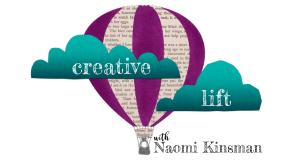You are the Expert on Being You
How often do you look up from the various fires you’re fighting and wonder: am I doing life right?
With life moving at a million miles an hour, it’s not surprising that we yearn for a different approach. In his book, Procrastinate on Purpose, Rory Vader describes our plight this way: We’re “juggling hamsters, running as fast as we can on our wheels.” We’re moving faster, juggling our priorities faster, but the only way forward is faster, faster, faster … until we crash.
Even though we say we can’t have it all, most of us secretly hope the rules are different for us.
We’re going to find the secret recipe. Eventually, we’ll stumble across the magic wand. This deeply held belief (which we often don’t admit to ourselves) causes us to act in irrational ways. We seek out the stories of others who “made it.” We ask for advice, read self-help books, are addicted to the blog posts that promise Three Simple Steps for … or How You Can “x” in Half the Time.
We spend so much time doubling back, looking for a shortcut, that we never make progress toward our goals. We keep trying new paths rather than moving forward on the path we’re on. Why?
We think someone else has the answer.
Is it possible for someone else to know how to be YOU better than you do? Sure, coaches and mentors are essential to our growth. Exploring opportunities, investing in development and being teachable are all important. However, in the end, the person who knows the right next step for you to take is … you’ve got it. You.
You are the singular mix of your innate gifts, your developed skills and your life experience. There is literally no one else like you. So, why do we try to force our lives into a pattern that is uniquely suited to someone else? Because … we think someone else has the answer.
If YOU have the answers, and yet you’re still confused, what should you do? Let’s say you are someone’s mentor. Your mentee sits down across from you to explain their current situation and their goals. What would you do?
Probably you would:
- Listen carefully.
- Reflect what they’ve said back to them, clarifying until you’re both sure that you’ve boiled the situation and goal down into a clear statement.
- Ask questions about what’s working now and what’s not.
- Consider your own life experience and share perspective that might shed light.
- Provide resources if you have them, or research new resources if you don’t.
- With clarity, perspective, and new information, you and your mentee would create an action plan.
When you move into the action plan part of the process, it is the mentor’s job to listen, to provide feedback, and ultimately, to leave the decision making in the hands of the mentee. If you have a mentor who takes the opposite stance, shoving their plan onto you, I’d highly recommend that you fire that mentor.
If you don’t have a mentor right now, though, take a look at those six steps again.
What if you gave yourself permission to be your own mentor?
What if you:
- Journaled or talked the problem out into an audio file, and then re-read or listened.
- Pulled out the key points and clarified the situation and goal into a clear statement.
- Brainstormed what’s working now and what’s not.
- Considered your life experience with YOU. When have you had success? What might you do that’s similar in this situation?
- Sought resources to fill your knowledge gaps.
- With clarity, perspective, and new information, created an action plan.
Doable, no?
Even if you do have a mentor, (and I strongly believe everyone should have at least one mentor) the key here is understanding where responsibility lies. Your mentor is there to advise you. You are the one who is responsible for the choices. That’s important, so it bears repeating.
You are responsible for your choices.
When you are ready to start making true progress, you must make this small but essential mental shift. You’re seeking out guidance not because of your weakness, but because of your strength. You are not the intern in your life. You are the CEO. Both the CEO and the intern have advisors, but interns and CEO’s relate and react to their advisors in significantly different ways.
Give yourself permission to be the leader in your own life. Be a strong leader, the kind of leader who listens to guidance, considers the options, confidently makes the best decision she can, and then takes responsibility for the results. Be the kind of leader who learns from the outcome, be it joyful or disappointing, and who adds that life experience to her expertise.
In what areas of your life have you accepted your CEO role? Where are you stubbornly clinging to your intern status? This mindset shift is simply a decision. You don’t need three steps to make it. You can make it, actually, before you close this window and move on with your day. In fact, this mindset shift might actually be that magic wand you’ve been looking for all along.
Choose boldly. I’ll be here, cheering you on.



